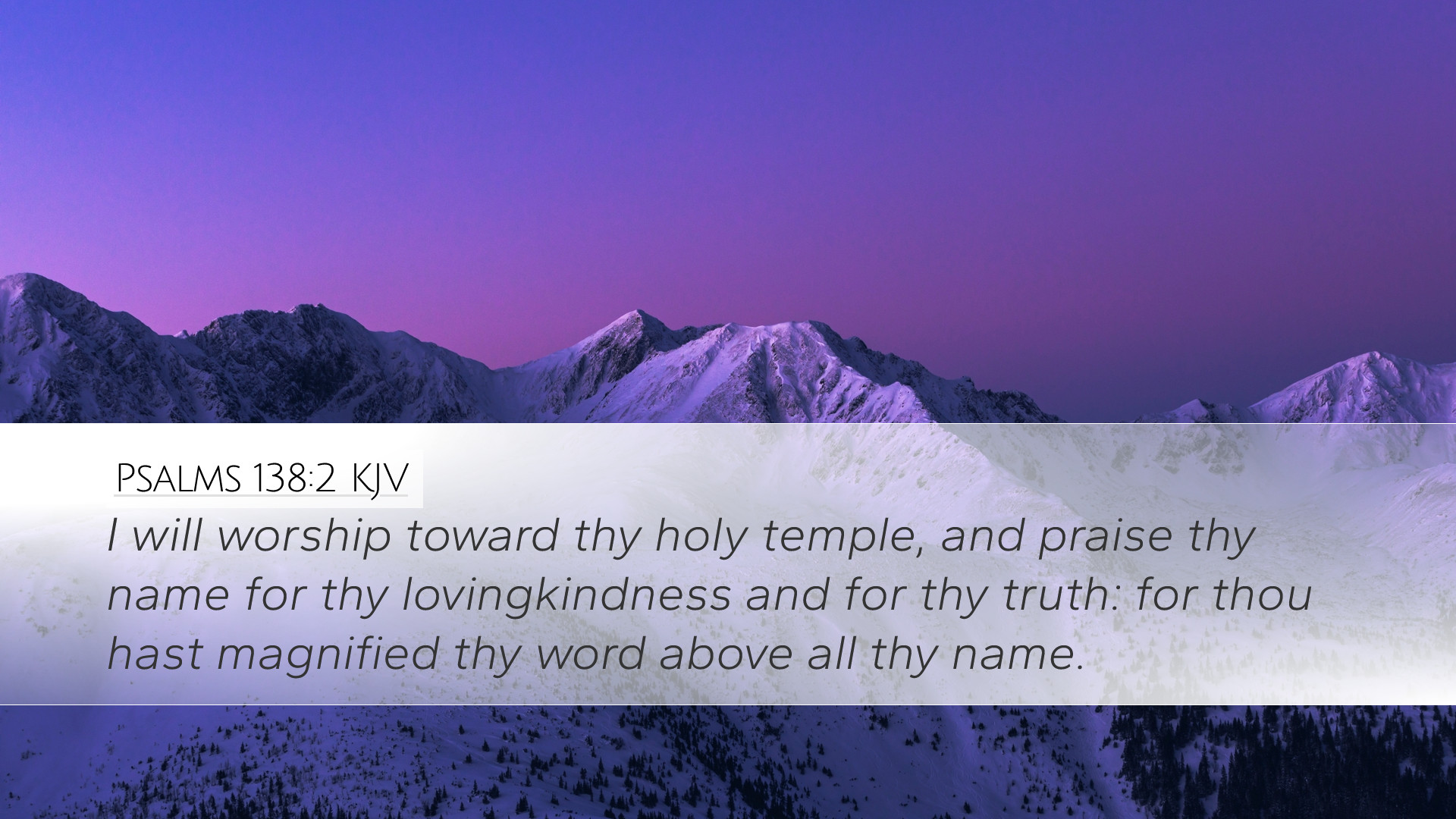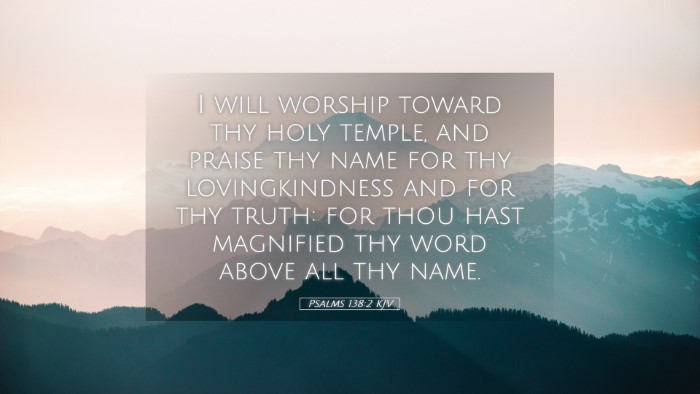Psalms 138:2 Commentary
Bible Verse: "I will worship toward thy holy temple, and praise thy name for thy lovingkindness and for thy truth: for thou hast magnified thy word above all thy name."
Introduction
The 138th Psalm is a declaration of praise and thanksgiving to God for His faithfulness, truth, and mercy. It presents a profound understanding of God’s character and His covenant relationship with His people. This verse, in particular, encapsulates key themes important for worship and the sanctity of Scripture.
Exegesis of the Verse
This verse expresses a dedication to worship which is directed specifically toward God's holy temple, indicating a place of divine presence. The psalmist emphasizes the significance of God's name, highlighting two main attributes: lovingkindness and truth.
Worship and Direction
The terms "worship" and "toward thy holy temple" signify not merely an act of reverence but a posture of the heart. The worshiper is demonstrating an intention to recognize God's supremacy and holiness. Henry cites that worship involves both inward and outward expressions, where the heart is set on the eternal truths of God, cultivated through prayer and meditation.
God’s Lovingkindness and Truth
The combination of lovingkindness and truth reflects a crucial theological aspect—God’s covenant love and faithfulness. Barnes elaborates that these qualities often work together in God’s dealings with humanity. Lovingkindness suggests a depth of compassion and loyalty, whereas truth indicates reliability and righteousness. Thus, this verse invites believers to recognize the multidimensional nature of God's character.
Magnifying His Word
The phrase "for thou hast magnified thy word above all thy name" merits special attention. The term "magnified" suggests the elevation of God's word to a position of utmost importance. Clarke posits that God's word is a reflection of His character, and it transcends even His name, which stands for His power and authority.
This assertion reinforces the belief that the Scriptures are central to understanding God. It fosters a commitment to Scripture within the life of believers, emphasizing the essentiality of the Bible in worship and doctrine.
The Importance of Worship
Worship is a vital theme throughout the Psalms. The act of approaching God’s temple signifies coming into His presence, a sacred setting where the psalmist can express his heartfelt gratitude and adoration. The inclusion of both public and private aspects of worship highlights its collective nature within the community of faith.
- Public Worship: The temple represents the community of believers gathering to honor God, affirming the value of communal expressions of faith.
- Private Worship: Individual dedication to worship reflects personal devotion and a deep-seated acknowledgment of God's qualities.
Applications for Pastors and Theologians
This passage is rich with practical implications for ministry and theological reflections. Here are several points to consider:
- The Centrality of Scripture: As raised in the verse, a commitment to God's Word must be central in preaching and teaching. Pastors should encourage congregants to engage deeply with the Scriptures, recognizing its role in revealing God's nature.
- Understanding God’s Nature: Grasping the essence of God's lovingkindness and truth can transform worship and theological teaching. It leads to practices that embody grace and faithfulness.
- The Call to Worship: This verse serves as a exhortation for the church to actively engage in worship—both corporate and private—as a response to God's magnificent character.
Conclusion
Psalms 138:2 is a richly textured declaration that provides profound insights into the essence of worship and the place of Scripture in the life of believers. It urges everyone engaged in ministry, scholarship, or personal study to reflect on their relationship with God’s Word and how it shapes their understanding of divine attributes. In summary, the psalmist’s commitment to worship not only honors God's nature but also uplifts the foundational role of His Scriptures, urging an intentional heart aligned with God’s lovingkindness and truth.


